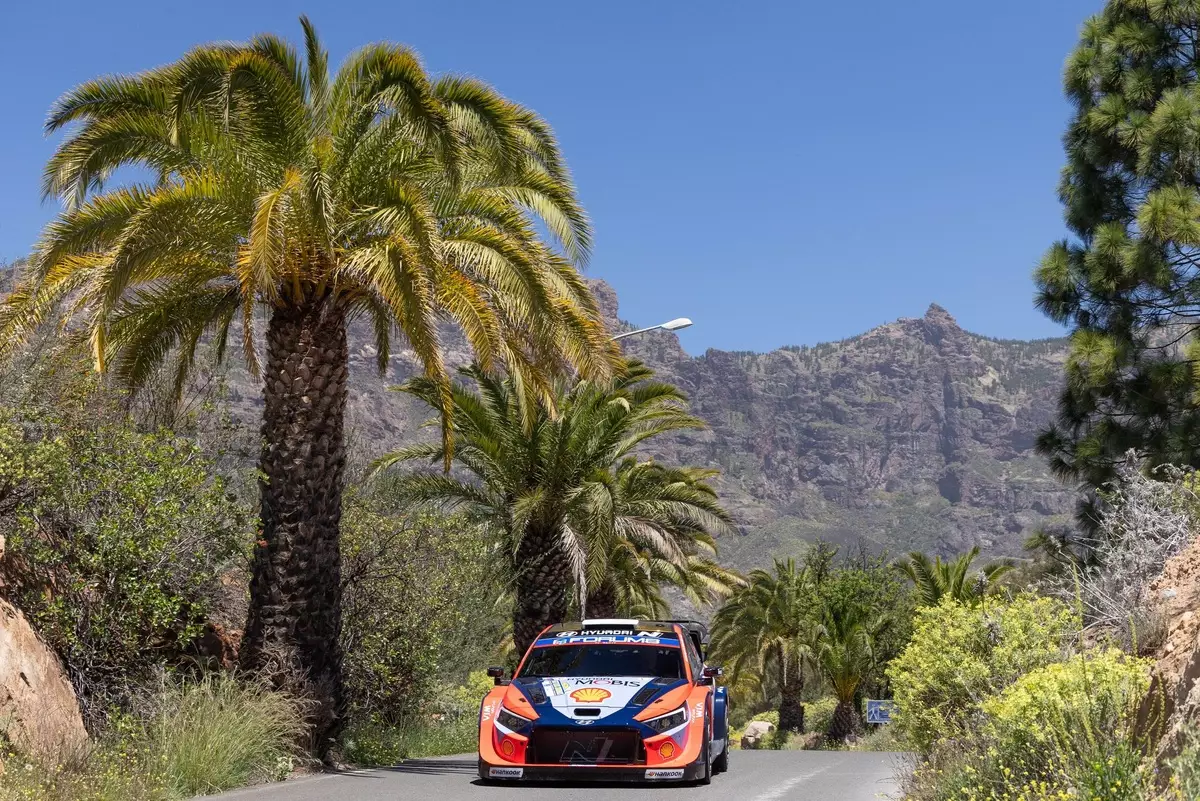The onset of the 2025 WRC season initially brought a wave of optimism for the Hyundai Motorsport team, fueled by Thierry Neuville’s promising performance at Rally Sierra Morena. Yet, the team’s aspirations met a harsh reality at the Rally Islas Canarias, revealing the stark contrast between expectations and performance. The event, characterized as a pure asphalt challenge, marked a significant turning point that exposed not only Hyundai’s unpreparedness but also the overwhelming execution of their rivals, particularly Toyota, who seized the podium with a striking 1-2-3-4 finish.
Hyundai’s failure to anticipate the unforgiving demands of the Canary Islands rally leads to critical questions about the team’s strategic planning and operational readiness. Their admission of misjudged difficulties and underwhelming set-up reinforces the principle that success in motorsport is intricately tied to meticulous preparations and adaptability in real-time scenarios.
The Technical Troubles Behind the Scenes
The rally unfolded as a dispiriting test of Hyundai’s technical capabilities. Despite arriving at the event with optimism, the team found themselves wrestling with the handling and performance of their i20 N Rally1 race cars. An inability to properly adapt to the Hankook hard compound tyres and a pre-selected differential setup emerged as key contributors to their lackluster pace, leaving Hyundai’s drivers unable to push their vehicles to the limits.
Ott Tanak’s reflections post-race shed light on the gravity of Hyundai’s predicament. His sixth-place finish, a staggering 3 minutes and 11.4 seconds behind Toyota’s Kalle Rovanpera, underscored the existence of significant gaps in preparation and execution. Tanak candidly stated that the rally highlighted deeper, fundamental issues—challenges that can’t be rectified overnight. His assertion that “big lessons will be taken” points to a pivotal moment in Hyundai’s journey, where introspection and strategic change are paramount.
The Challenge of Competition
The dominance of Toyota during the event is not merely a testament to their performance but a clarion call for Hyundai to reevaluate their competitive strategies. The palpable gap in preparation and performance reflects broader implications in the world of rally racing, where manufacturers must remain agile and preemptive in addressing potential issues. The pressure is mounting on Hyundai to harness their homologation joker effectively; failure to leverage this opportunity could further cement Toyota’s upper hand in the championship standings.
However, the silver lining comes from Hyundai’s Adrien Fourmaux. Despite the overall disappointment, he emerged as the fastest Hyundai driver, securing a fifth-place finish while engaging in an internal battle for supremacy within the team. This intra-team rivalry, albeit slight, offers glimpses of hope that there is potential within Hyundai to harness various strengths and push the brand forward. This nuance shouldn’t be overlooked; even within defeat, there exists motivation for improvement and growth.
Looking Ahead: Embracing Change
Despite the disheartening experience in the Canary Islands, optimism remains within the ranks of Hyundai. Fourmaux’s perspective—that last weekend’s challenges were rally-specific—highlights a crucial point: not every event will present the same obstacles. Assurance about the team’s resilience and capacity to adapt plays a significant role in maintaining morale.
Formulaic analysis of Hyundai’s recent performance leads to constructive criticism that can steer future improvements. There exists a belief within the team that the lessons learned from this humbling experience can translate into tangible advancements. The road to reclaim supremacy in the WRC will undoubtedly require rigorous evaluation of not only car performance but also strategic foresight in preparation for upcoming rallies, including the Central European Rally, where asphalt conditions will once again be a deciding factor.
As Hyundai reflects on this pivotal moment, the continuous pursuit of excellence in the face of adversity defines true strength in motorsport. The focus should not solely dwell on past failures but also on a commitment to innovation and evolution, ensuring that Hyundai emerges stronger from this setback. With tenacity and a willingness to learn, the future of Hyundai in the WRC could very well hinge on their ability to embrace change and pivot towards success.

